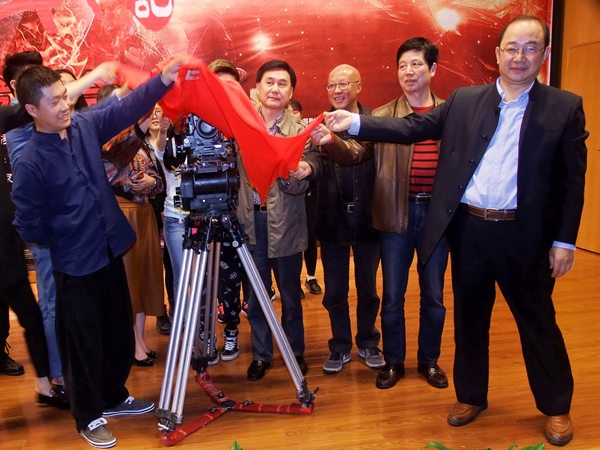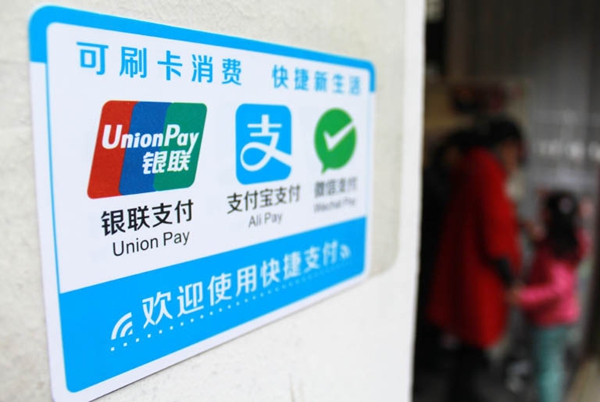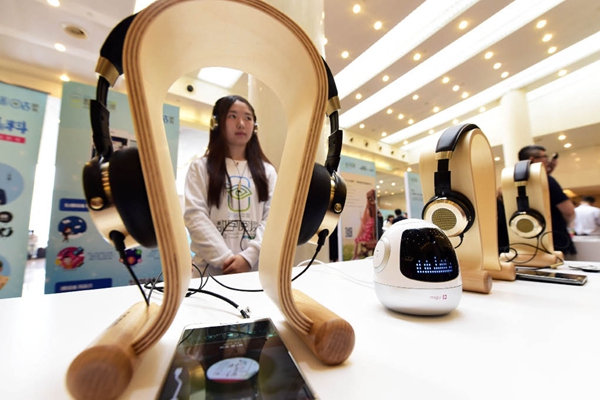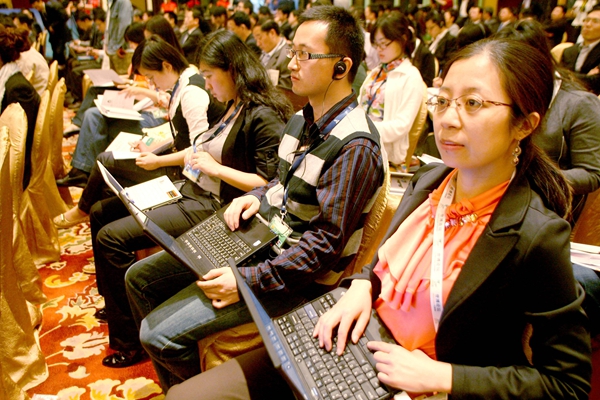China in the Internet Age
In 1969, when the Internet first appeared, people never imagined that it would penetrate into all fields of economic and social life with its unstoppable trend 30 years later. Nowadays, the gradual integration of the Internet and traditional industries and the increasingly blending of industrial boundaries have given birth to a new model of industrial development led by the Internet. With the rapid development of modern information network technologies such as big data and cloud computing, the Internet has further intensified the changes in the world economy, built a global industrial innovation and commercial marketing network, and will continue to be the main engine to promote economic and social development and lead the world to the future. On April 20, 1994, China fully accessed the Internet through the 64K international dedicated line, which opened the Internet era in China and became an indispensable part of the work and life of hundreds of millions of people. China has become a veritable Internet power.
Internet has penetrated into all fields of social life.
How people’s lives are internetized? Let’s first look at a set of data. According to CNNIC data, in 2003, the number of netizens in China was 79 million, and the Internet penetration rate was 4.6%. By the end of 2015, the number of netizens in China had reached 688 million, and the Internet penetration rate was 50.3%, ranking first in the world. The development of mobile Internet is advancing by leaps and bounds. In 2015, the number of mobile Internet users in China was 620 million, with a penetration rate of nearly 90%, which was 30 percentage points higher than that in the world. From the early days of sending e-mails, publishing and inquiring information through the Internet, it has gradually developed into social chatting with QQ, WeChat, online shopping, online map navigation, etc., and the Internet has penetrated into all fields of people’s lives. In 2015, the number of online education users in China reached 110 million, accounting for 16% of netizens; The number of Internet medical users is 152 million, accounting for 22.1% of netizens. The number of online taxi booking users is 96.64 million, and the number of online car booking users is 21.65 million. The inclusive, convenient and sharing characteristics of the Internet have penetrated into the field of public services, accelerated the application of socialization, innovated social governance methods, improved the level of public services, and promoted the improvement of people’s livelihood and social harmony.

China has set off a wave of online movie shooting. According to industry insiders, online movies will be on an equal footing with cinema films in the future, even surpassing traditional cinema films.
Internet has become the standard of all working departments, from government departments to enterprises, it is more and more widely used to obtain information, process documents and all kinds of exchanges and transactions. According to CNNIC data, by the end of 2015, the proportion of enterprises in China using computers for office work was 95.2%, the proportion using the Internet was 89.0%, the proportion using the Internet through fixed broadband access was 86.3%, and the proportion using mobile broadband was 23.9%. In addition, the proportion of online sales and online procurement is 32.6% and 31.5% respectively, and the proportion of marketing promotion activities using the Internet is 33.8%. Enterprises widely use a variety of internet tools to carry out communication, information acquisition and release, internal management, business services and other activities, and a considerable number of enterprises have applied systematic and integrated internet tools to the whole business processes such as production research and development, procurement and sales, financial management, customer relations, human resources, etc., and transformed the Internet from a single auxiliary tool into enterprise management methods and transformation ideas to help supply chain reform.
In recent years, the Internet economy has developed rapidly. China’s Internet economy was born in the mid-1990s. Tencent, Baidu and Alibaba were the pioneers and main forces in the development of China’s Internet economy in the early days. Later, Internet companies such as Qihoo, Sina, JD.COM and Renren appeared. At present, BAT (Baidu, Ali and Tencent) has become an internationally renowned Internet giant. Alibaba’s e-commerce enterprises such as Taobao, Tmall, Alipay, JD.COM, Suning and other related service enterprises such as logistics and distribution, warehousing, and network design have formed a new e-commerce ecosystem, leading to the construction of a big platform and a big channel for Internet consumption, so that consumers can shop and consume through the Internet. Relevant data show that in 2015, the scale of e-commerce transactions in China was 20.6 trillion yuan, of which the online retail transaction volume was 3.88 trillion yuan, which was 20.9 percentage points higher than the growth rate of total retail sales of consumer goods in the same period, accounting for 10.8% of the total retail sales of consumer goods. The number of consumers who used online shopping reached 413 million, making it the largest online retail market in the world for three consecutive years. It is estimated that the online retail market in China will reach 6.5 trillion yuan by 2018. And cross-border electronic commerce has become a beautiful landscape. In 2015, the cross-border e-commerce transaction volume exceeded 5 trillion yuan, accounting for 18% of the import and export trade. It has initially realized "buying the world and selling the world" through the Internet, and China residents can buy products from all over the world without leaving home.
Internet promotes a new model of industrial development.
As early as 2010, the White Paper "The Internet Situation in China" mentioned that the government and people of China are welcoming the arrival of the Internet era with a positive attitude, and China regards the development of the Internet as a major opportunity to promote the cause of reform, opening up and modernization. In essence, the penetration of the Internet into industries is to endow traditional industries with more attributes, raise traditional industries to a new level, and form a qualitative leap of industrial synergy, that is, the original non-Internet business will have a qualitative change of cross-border integration after being connected with the Internet, and this qualitative change is not only to improve efficiency, but also reflected in industrial restructuring.

Many shops in China have posted convenience notices supporting fast payment methods such as UnionPay payment, Alipay payment and WeChat payment.
Internet promotes the transformation from China manufacturing to China intelligent manufacturing. Through the integration of the Internet and industrial manufacturing, we will lead the manufacturing industry to "digital, networked and intelligent" transformation and upgrading. Germany’s "Industry 4.0" and America’s "Industrial Internet Alliance" all use the advantages of the Internet to enhance the value creativity of industry. The essence of "Made in China 2025" is to realize the progress from an industrial power to an industrial power through the polymerization and fission of the Internet and industry. Relevant data show that in 2014, about 46% of the global output in the global economy benefited from the industrial Internet. By 2020, the global expenditure on the industrial Internet will reach 500 billion US dollars, and by 2030, the industrial Internet will contribute 15 trillion US dollars to the global GDP. Haier’s digital interconnection factory is a typical case. Since 2012, Haier has planned to build a digital interconnected factory. By subverting and upgrading the traditional production mode, it has created an interconnected factory system with on-demand design, on-demand manufacturing and on-demand distribution, so that the whole manufacturing process can be highly flexible and meet the needs of personalized customization. At present, Haier has built four world-leading demonstration interconnected factories, including Shenyang refrigerator and Zhengzhou air conditioner. "Economic Daily" pointed out in the report that Haier’s exploration of the connected factory is to fully meet the individual needs of users around the world. The evaluation given by Xinhua News Agency is, "Behind Haier is the first landing of’ internet plus Household Appliances’. After ten years of exploration, Haier, who is reborn and full of’ interconnected taste’, is ready to come out. "
The Internet helps agricultural modernization, integrating the Internet and information technology such as perception, transmission, control and operation into all aspects of agricultural production, processing and sales, and realizing the intelligence, standardization and standardization of agriculture, namely, intelligent agriculture mode, agricultural e-commerce mode and Internet agricultural industrial chain mode. Its function not only enables Internet technology to transform agricultural production links and improve agricultural labor productivity and production level, but also uses Internet technology to control the whole production and operation process to ensure product quality, and even uses Internet technology to carry out innovative design of product marketing, so as to realize the traceability of the whole process of agriculture and the intelligent and networked operation of the whole industrial chain. The Internet brings new data, information and new technical means, which makes all links in the agricultural industrial chain and all market segments in the agricultural field have more tools, conditions and possibilities for innovation. Such as the application of Internet of Things in planting and animal husbandry, the application of remote sensing monitoring technology in grassland and fishery, the application of RFID technology in aquaculture, and the application of GPS technology in agricultural machinery. In addition, there are several obvious innovations in Internet agricultural business model, such as: agricultural materials e-commerce, land circulation e-commerce, urban and rural circulation channel reform, agricultural products e-commerce, agricultural big data, agricultural Internet of Things, leisure agriculture Internet platform and so on.
The Internet has changed the development mode of the service industry. Through Internet transmission and big data, the Internet has penetrated into all fields of the service industry, giving birth to many integrated network service platforms and emerging service models such as O2O. Only Alibaba, its business scope has involved e-commerce, social networks, logistics, finance, tourism, navigation, video entertainment, medical care, education, culture, sports and many other service industries. Around mobile social networking, O2O, LBS, etc., service companies have also developed and launched various applications, including online shopping, group buying, food, life information, maps, travel, weather, navigation, health, movies and so on. "internet plus Communication", QQ, WeChat, Momo, etc. appeared; "internet plus Traffic" has appeared taxi software such as Didi Kuaidi; The intelligent circulation of "internet plus Logistics" makes intelligent logistics scheduling, intelligent logistics rhythm control and intelligent warehouse storage by using information network management and injecting intelligent data analysis. Internet medical treatment includes health education, raw material information inquiry, electronic health records, disease risk assessment, online disease consultation, online registration, online prescription and so on. Internet education has created various P2P interactive and intelligent education platforms, such as Yizuowang. In addition, there are various new service modes based on the Internet, such as Internet tourism and Internet catering.

The 2nd China Digital Reading Conference in 2016
The Internet has given birth to a new model of inclusive finance and banking services. Through the Internet platform and payment technology, financial institutions are directly connected with enterprises or individuals, which promotes the internetization of financial institutions, enhances their competitiveness in channels, data and technology, and enables Internet enterprises to participate in financial services, enriching traditional financial systems and products, and promoting inclusive finance, thus improving the productivity of the whole industry and promoting the enrichment of financial ecology. At present, the specific models include: internet finance, online payment, P2P network credit, internet banking, crowdfunding financing platform and so on. Its essence is to combine financial services with internet factors, use internet thinking, build a new model of internet financial services, and bring more benefits to financial consumers. At present, all the major banks in China have launched a banking service model led by Internet technology. For example, Ping An Bank has specially set up a network finance division, and built Internet portals for four major customer groups, including Orange E-Net, Pocket Bank, Orange Bank, Bank E-Link and Golden Orange Club. On orange e-net, users can join up with upstream and downstream trading partners to complete online order, online receipt and delivery, online settlement and cancellation of orders, and can carry out online financing, online insurance, investment and wealth management, capital appreciation and other financial management. The whole platform is open to customers free of charge, which greatly reduces the operating costs and financing costs of SMEs.
The Internet promotes the formation of a unified national market. The internet plus Research Report of Ali Research Institute pointed out that the combination of the Internet and the retail industry promoted the formation of a unified e-commerce market, released huge domestic consumption potential, and promoted the leap-forward development of China’s circulation industry in covering geographical scope and population. At the same time, thanks to the revolution of trading technology and business model, the efficiency and level of the circulation industry have been significantly improved by the Internet. Through the natural attribute of "distance-independent", the Internet has smoothed out the gap between systems and policies in different regions of the country, constructed unified access conditions, trading rules, credit systems, IT services, finance and logistics systems, and formed a de facto unified national market. Ali Research Institute estimates that the transaction efficiency of online retailing is four times that of physical retailing. At the same input cost in 1 yuan, the transaction volume of goods completed by physical retailing is 10.9 yuan, while that of online retailing is 49.6 yuan. The combination of the internet and the circulation industry has greatly released the consumption in the central and western regions and remote areas. Relevant data show that in 2015, the development of e-commerce and express logistics in the central region rose rapidly, and the year-on-year growth rates in Henan and Anhui even exceeded 70%.
Internet facilitates people’s life.
With the penetration of the Internet into the medical industry, new modes of Internet medical care are constantly emerging, including the registration network to solve the registration problem, the invention of various wearable devices, the APP to manage chronic diseases, and the online consultation of experts and doctors. On December 7, 2015, Wuzhen, Zhejiang Province took the lead in the emergence of the first Internet hospital in China. At present, there have been tool websites represented by registered websites and "360 Good Doctors Search" in the Internet medical industry. Consulting websites represented by "Spring Rain Pocket Doctor", "Seeking medical advice" and "Answering questions"; Major disease triage and referral websites represented by Good Doctor Online. In addition, there are 39 Health Net, which focuses on health education and information, 120ehr Net, which focuses on the collection and application of electronic health records, Yikang Net, which focuses on disease risk assessment, and Lilac Garden website, which focuses on professional doctor information. People can see a doctor at home, and they can make an appointment online in advance to go to the hospital, eliminating the distress of "No.1 is hard to find".
In the early days, the penetration of the Internet into the travel industry was mainly traditional car rental, special car, driving and other services. Later, carpooling and other services that can realize service sharing gradually appeared, and services were constantly innovated and upgraded. At present, most people have downloaded travel software such as Didi and Uber on their mobile phones, so it is fast and convenient to go out and call a car. In 2015, the proportion of Internet booking for passenger travel by air and railway in China was about 78% and 68% respectively, and the number of users who booked through the Internet exceeded 60%, which was steadily increasing. On the highway side, many highway travel platforms have extended their tentacles to personalized passenger transport business. According to public data, the 12308 national bus ticket is the largest cross-city O2O travel platform in China, which has been extended to 6,391 bus stations in 26 provinces, more than 3,000 cities in China, with the scale of operating lines reaching 3 million/day, and each ticketing cycle (based on 5 days) can put more than 700 million guest resources into the market. In addition, Internet travel platforms such as Ctrip.com, Tuniu.com, and Mama Donkey enable people to book hotels, travel pick-up stations, park tickets, etc. before traveling, and people can enjoy all-round intimate services through the Internet.

Use a laptop to record the participants who delivered the manuscript.
Internet ordering mode has injected new business opportunities and vitality into the traditional catering service industry, and gradually changed people’s living habits and consumption patterns. All kinds of Internet ordering platforms enable people who don’t want to cook to customize all kinds of delicious food at home through ordering platforms such as "Meituan" and "Hungry", and the food ordered can be delivered to their doors within one hour. Especially in rainy and snowy weather, online ordering allows people to stay at home and enjoy warm food conveniently with only their fingers, which greatly improves people’s quality of life. In 2010, the overall market size of catering industry in China was 1,768.1 billion yuan, and in 2014, it reached 2,813.2 billion yuan in China. In 2015, under the background of rapid economic development in China and the promotion of internet catering mode, the overall market size of catering industry in China reached 3,489.2 billion yuan, and it is estimated that it will reach 4,896.2 billion yuan in 2017.
In addition to the above-mentioned typical areas, online shopping, buying movie tickets through the Internet platform, paying online fees, receiving education and training online, ordering home decoration services online, finding nannies online, finding hourly workers, etc. At present, almost all areas of people’s lives can enjoy the convenience brought by the Internet. Lu Wei, director of the National Network Information Office, pointed out at the opening ceremony of the second Internet conference, Light of the Internet Expo, held in December 2015: "We should promote the Internet to enter thousands of households, guide the people to understand the world, master information, exchange ideas, innovate and start businesses, improve our lives, and let the fruits of Internet development benefit 1.3 billion people in China and benefit all mankind."
In the future, the impact of the Internet on people’s lives will be further revealed, and various business models and service models will emerge constantly. China people will enjoy the dividends and benefits brought by the Internet more and more, and China’s Internet economy will also become the core competitiveness of China from a big country to a strong country.
Zhang Li, Deputy Director and Research Fellow, E-commerce Research Department, Research Institute of Ministry of Commerce